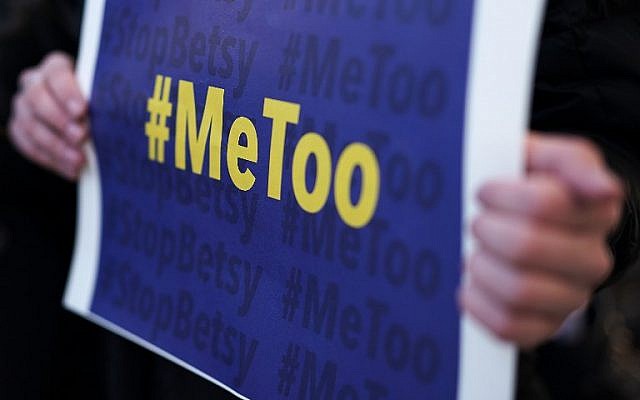Monday, February 05, 2018
“The level of suicide and physical and emotional damage among the victims of violence is unbearable. They, unlike those who hurt them, have no power or standing. They are the ones who are taken advantage of and always brought down. They cry in the dark, alone, out of sight. The victims die in secret. They have no name or face or identity,”
Subscribe to:
Post Comments (Atom)




The Arad suicide makes the front page of all three major dailies Sunday morning, and is accompanied by a goodly amount of commentary over the “hard questions” that followed, in Israel Hayom’s language.
Yedioth Ahronoth leads off with the story, which takes up almost the whole front page and the next three pages of the tabloid. One might think that the prominence the paper gives to what amounts to a very personal and domestic story is indicative of it seeing a larger scandal within, but the paper makes clear it has no truck with sympathy for the devil.
“Crime and punishment,” reads the headline of the paper’s main news story, which is accompanied by self-portraits from Arad of him shooting himself. The story notes that he was the third teacher in the Telma Yellin school in Givatayim to be accused in just two weeks, but mostly focuses on Arad and how the story on him led to his death. (Two complementary stories from the paper delve into the allegations of a wider harassment culture at the art school.)
As for the supposed hard questions, two of the papers’ commentators come to the same conclusion: He’s not a victim and the journalists were doing their job.
At the same time, the paper’s Hen Arzi-Srour links the death to the #MeToo movement.
“The level of suicide and physical and emotional damage among the victims of violence is unbearable. They, unlike those who hurt them, have no power or standing. They are the ones who are taken advantage of and always brought down. They cry in the dark, alone, out of sight. The victims die in secret. They have no name or face or identity,” she writes. “This isn’t shaming here since the article was well-founded, truthful and to the point: a man who admitted to his deeds. The time has come to say that in the age of #MeToo, the rules have changed. The victim has a voice, and the voice will no longer be quiet.”
Haaretz relegates most of its coverage of the suicide to its arts section, but the same general gist as in Yedioth comes through, including columnist Roni Bar calling the death a tragedy, but one that should not be on the head of Mako, the website that published the allegations.
“Mako journalists did their jobs and gave a voice to victims of sexual misconduct. From reading the investigation and without knowing what went on behind the scenes, it seems they worked carefully, in a well-founded and professional way. Once they became worried over Arad’s mental state they even sent a police car to his house. It’s easy to judge off the cuff, but they could not have known he would actually follow through with his threats,” Bar writes.
But in the same paper, Doron Koren writes that the journalists were out of line and too zealous in trying to join the #MeToo crowd, listing as their sins the fact that the sexual misdeeds were 25 years old and involved a consensual relationship, in his telling.
“The media is still not built to differentiate the severity of different sexual misdeeds,” he writes. “So maybe they will be more careful next time.”
https://www.timesofisrael.com/expose-leads-to-suicide-but-media-wont-play-blame-game/?utm_source=The+Times+of+Israel+Daily+Edition&utm_campaign=049f02dd32-EMAIL_CAMPAIGN_2018_02_04&utm_medium=email&utm_term=0_adb46cec92-049f02dd32-55186525